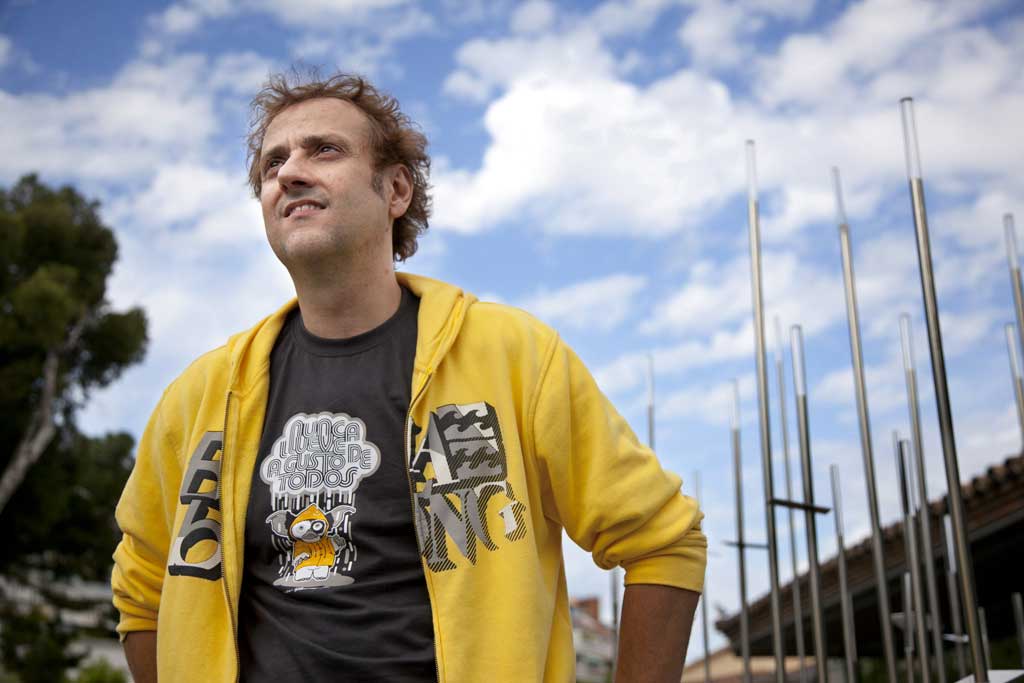The Yellow World, By Albert Espinosa, trans. James Womack
Far more helpful than mere 'self help', this memoir of survival teaches true zest for life

Albert Espinosa didn't want to write a book about the ten years he spent fighting cancer between the ages of 14 and 24, during which time he lost a leg, a lung and a chunk of his liver. He wanted to write instead about the profound lessons in how to live he learned from cancer.
At 24 he was given the all-clear and sprung out into the world. But his formative years spent nose up against the grindstone of gruelling treatment, surrounded by his fellow "Eggheads" (the affectionate nickname for young cancer patients) so shaped him that he couldn't simply "move on". " I was born from cancer", he writes.
Now in his late thirties, an engineer and successful screenwriter, he has dug deep into his experiences. Drawing on his relationships with fellow-patients, doctors, hospital staff and visitors, Espinosa made 23 "discoveries" about how to live fully, whatever the circumstances. He shares them in a unique, uncategorisable, funny, energetic rush of a book, which isn't self-help but is very helpful.
"The yellow world", writes Espinosa, "is the name I've given to a way of living … of nourishing yourself with the lessons that you learn from good moments as well as bad ones." This world is made up of those parts of life that have a brilliant, sun-rich life-force about them, even the most difficult experiences.
We need to learn how to lose things, he says, and see our losses in new ways. He describes how even the most painful experiences have beauty hidden within them. In the early dawn of the day Espinosa had his leg amputated, he asked a nurse to dance. They danced around the ward toCuban music. This is not shallow positive thinking; it's much more direct. Espinosa suggests we feel the sadness and loss, mourn, but that this will make space for deepening insight.
He is full of ideas. Bring contrasting things together, he says, and we'll make something new: we should put swimming pools in hospitals, bowling alleys in airports, and libraries of books in woods. Espinosa is now advising doctors on how to interact with young cancer patients. If I become ill again, I definitely want to be on the Espinosa ward. The author is a combination of a Zen hero at ease with the paradoxes of life, and a hyperactive adolescent fizzing with innocent exuberance.
Espinosa reminds us that life-threatening illness isn't just physical; it's emotional, psychological and spiritual. It was thrilling for me, a fellow cancer survivor, to read a tale of how someone became wholly themselves through their experiences of cancer. Espinosa created himself and surfaced with his scars proudly on display. This has given him confidence, strength and a unique perspective on life. Any reader who wants to know how to live more fully and accept their vulnerability as a mortal human being will find The Yellow World a subtle, colourful and stirring joy; a book that shines with comedy and grace.
Rebecca Loncraine is the author of 'The Real Wizard of Oz' (Gotham); she is writing a book about coping with cancer through learning to be a pilot
Subscribe to Independent Premium to bookmark this article
Want to bookmark your favourite articles and stories to read or reference later? Start your Independent Premium subscription today.

Join our commenting forum
Join thought-provoking conversations, follow other Independent readers and see their replies